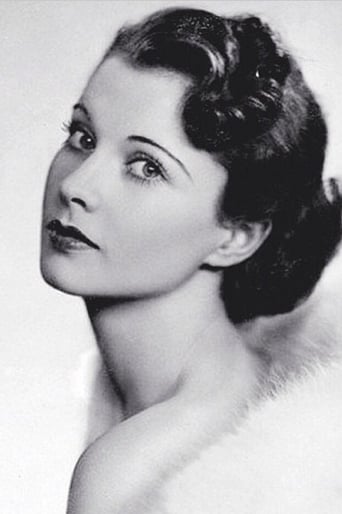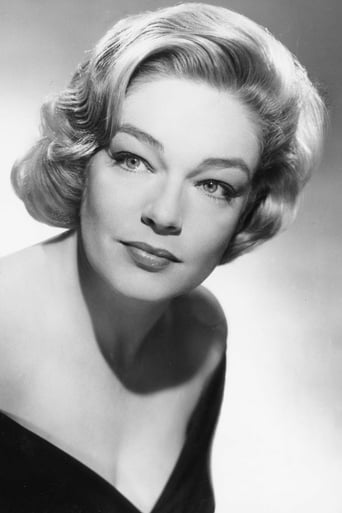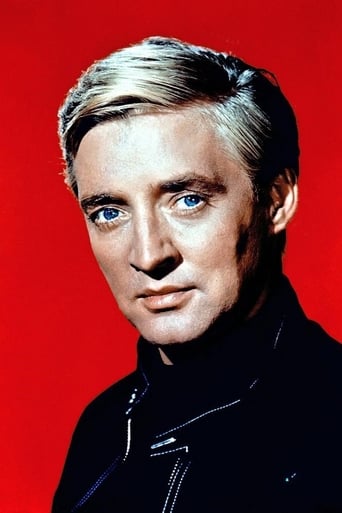Kattiera Nana
I think this is a new genre that they're all sort of working their way through it and haven't got all the kinks worked out yet but it's a genre that works for me.
GamerTab
That was an excellent one.
Dorathen
Better Late Then Never
Console
best movie i've ever seen.
ma-cortes
This Soaper is a stirring story dealing with a dramatic as well as tragic voyage ; displaying a stellar cast formed by Hollywood actors and notorious German players . It's an enjoyable but overlong screen rendition based on Katherine Anne Porter novel of the same name . In 1933 (during election of 1933, in which the National Socialist German Workers Party received 43.9% of the overall vote, an increase of 10.8% on the previous election) , a varied and vast group of passengers on a ship en route from Mexico to Germany represent society at large in that era . Carrying hundreds of Spanish refugees , German (Heinz Ruhmann was not Jewish but he was a very rabid anti-Nazi and anxious to play the part) and Jewish people that seemingly are destined to certain doom . The crew is German , including Capt. Thiele (Charles Korvin) , Lt. Huebner (Werner Klemperer) and doctor Schumann (Oskar Werner features most memorable acting) who falls in love with one of the passengers , the neurotic Contessa (Simone Signoret) . Furthermore , the once famous but now a disappointed and despairing divorcée named Mary Treadwell (Vivien Leigh's last film , she replaced Katharine Hepburn who was first choice for the aging Southern belle, but because of Spencer Tracy's bad health she opted to continue to care for him), a punchy as well as forceful baseball player (Lee Marvin) and a wise dwarf (Michael Dunn) . A young American woman, Jenny (Elizabeth Ashley) , is traveling with the man she loves, David (George Segal) . The passengers have mixed emotions about their voyage , some are happy about freedom , some are sad to leave their homeland, some become involved into illicit loves and some are angry about their next fates . Some of the crew (Jose Ferrer) , those that sympathize with the Nazis , are also angry that authorities would allow Jews to sail to freedom and are bigotries about having to share place with their inferior passengers .This is a penetrating drama with all-star-cast gives superb interpretation and realized in ¨Grand hotel¨ at sea style . Special mention to the extraordinary couple acting as illicit lovers magnificently played by Simone Signoret and Oskar Werner who would make a similar film 11 years later ,¨Voyage of the damned¨ by Stuart Rosenberg , also was about a boatload of refugees heading back to Germany before the outbreak of the Second World War ; it would prove to be Werner's final film . The picture is overlong and a little boring ; being occasionally interesting . Picture almost dissolves into separate stories but ship's captain and doctor hold it together . It deservedly won Academy Award for art direction (Robert Clatworthy , Joseph Kish) and cinematography (Ernest Laszlo) .This old-fashioned motion picture was well produced and directed by Stanley Kramer . He directed 14 different actors in Oscar-nominated performances .He was a notorious producer and director who gave big successes . Kramer formed his own production company in 1947, in conjunction with Carl Foreman . He had a reputation for being frugal, working well within his budgetary limitations . Many of his films reflected social or political concerns and were often controversial . Stanley was consequently tagged as a "message film maker" and "Hollywood's Conscience" . Among his most popular films are : The pride and the Passion¨, ¨On the beach¨, ¨ Judgment at Nuremberg¨, ¨Ship of fools¨, ¨World is mad , mad ,mad¨ and ¨Guess Who's Coming to Dinner¨ . Rating : Acceptable and interesting drama . Worthwhile watching
tforbes-2
I agree with the opinion that "Ship of Fools" is a flawed great film, and it is one of the many movies that made 1965 a most memorable year in cinema. Here, we have Vivien Leigh in her final outing, and she shines, whether by herself, or when she plays opposite up-and-coming Lee Marvin. Marvin would enjoy this year, as he won an Oscar for another movie, "Cat Ballou."So many of the other performers turn in great performances. I personally enjoyed both Henry Calvin and Werner Klemperer, especially because the latter's character showed such depth. Mr. Klemperer, thankfully, was given a role with real dimension, and he holds his own against Ms. Leigh.What really mars this movie for me is the costuming. This is supposed to be 1933, but so many of the styles here scream 1964-65, when the movie was made. This is especially so with many of the supporting players, such as George Segal, Elizabeth Ashley and BarBara Luna, and— sadly—some of the more major players, such as Oskar Werner (his glasses) and even Ms. Leigh. I felt this distracted from the overall production. It was not as if Columbia Pictures had the same difficulties as Fox, which was in terrible shape from "Cleopatra," and which DID manage good costuming with "The Sound of Music."Overall, this is a compelling film, despite its flaws. Well worth watching!
secondtake
Ship of Fools (1965)The title is a giveaway, because it refers to a literary device where a handful of people are together in some restricted way, and their characters are revealed. As time goes on, we see how these different types, or archetypes, typically oblivious and ridiculous types, react to either their isolation or, often, to a crisis. It gets used more loosely in any shipwreck movie, like the Titanic movies. And the concept, in general, of seeing how different people react, and how we are all somewhat ignorant of how the world really works, is at the core of a lot of fiction and drama.And so Ship of Fools makes clear, with a narrator looking at the camera, that this is metaphorically (or actually, inside the larger metaphor) a ship of fools. Because we are on a ship carrying an array of passengers to a faraway country, it becomes literal, too, and in a way we look for the few sane people in the lot. The doctor (Oscar Werner) surely seems to fit the bill, and it's a virtuosic performance of a man trying desperately to find meaning, and to do the right thing. Vivien Leigh makes her final screen performance as a pathos filled aging woman.The time is the early 1930s, during the Nazi buildup (militarily and socially, changing and numbing normal morality), and the themes of the time are woven into the story. In fact, the boat is a German liner, and filled with Germans in first class. They really are fools, the most German of them all a happy go lucky Jewish man, and anti-Semitism is one of the few themes to actually lift its head to the surface, though not in a heavy handed way. Mostly the themes are more personal, and this could be a bunch of people from any country, sorting out differences, finding fleeting affections.The photography, which won an Oscar, is startling in its clarity, and it's complexity (see the scene, fairly early on, when they hose down 3rd Class, is amazing stuff). This is actually at the tail end of the era for a full blown black and white film, but I think they wanted to have it easily seen as a 1930s experience. Certainly the filming standards are right there with other 1960s masterpieces, and even as the story slows, you find yourself very happy to watch, to be a fool with the other fools on this very beautiful ride.
suaheli
I really love this movie and will not repeat all the things that fellow posters have already mentioned but then some. Simone Signoret and Oskar Werner broke my heart, especially when she picks up a medical book to read to ill Oskar Werner and cites "Lady Chatterley" instead. Their spontanous embrace after this is one of the most moving love scenes I have ever seen. Vivian the Great does the most of the little stuff she has to do with. A shame that in her latter years she chose to play these wornout types of women (Mrs. Stone f. ex.) whereas she still had so much spunk and sexiness going for her. Her scenes are still a joy to watch, sometimes Scarlett, sometimes Blanche. Michael Dunn, Werner Klemperer, Lee Marvin and Charles Korvin are very good. The young lovers/artists are downright annoying. Whenever I saw them I remembered that French "philosopher" in "Funny Face" and it made me laugh. I don't know the book but their "artistic/sadomaso angst" is 50's, 60's stuff and they didn't add anything to the story. Elisabeth Ashley did a fine job though. Who agrees with me that she looked like a young "Rose from Upstairs-Downstairs"? And now - brace yourself - here comes a German point of view. I saw this with an English DVD (you get Hindi subtitles among others but not German ones)but I believe I understood. I still really had a hard time to figure out who would have spoken German and English and Spanish if it were for real. Funny moment when Heinz Rühmann accused José Ferrer of speaking an odd German accent (Rieder was "Bosnian, but close to the border") in English. Okay. On a more serious note I was really annoyed about the casting of Heinz Rühmann, Nazi pet who gave up his Jewish wife in real life not to get his Nazi mentors cross (I wonder what he thought of Herr Freitag, a part I would have given him). His jolly good shoes delivery of Julius Löwenthal without a second layer was terrible. Did anyone ever believe he was the bearer of the Iron Cross? As far as I know they were awarded to "war heroes". Did he put the enemy to sleep with his stories or wore them out by snoring? Gerd Fröbe, Hans Albers and a lot of other (German) actors would have added more depth to his relentless optimism and delusion. He didn't do anything with this tragic part. I really wonder what 2nd thoughts Stanley Kramer had to give Rühmann the part. José Ferrer was believable as an opportunistic gold digger who would sell for everybody for his own advantage. But that was the stuff most Nazis were made of I guess. Cudos to his German lines and the song, they were impeccable. A let down is the Spanish pimp who stressed they were no Gypsies (who were killed by the Nazis also later on) and the friendship between Spain and Germany. Yet Hitlers pal Franco did only come into power in 1936.






